I first encountered Vanessa Rosa’s mesmerizing aesthetic several months back in Lisbon, Portugal. I was delighted to have the opportunity to then meet up with the wonderfully talented Brazilian visual artist and art historian here in New York City.
When and where did you first hit up a public space?
Back in 2009 in a favela in Rio.
What inspired you at the time?
I’d always been interested in street art. I love the way it is accessible to everyone – not just to people who visit museums. Most of my schoolmates back in Rio had never entered a museum or a gallery. But they were very ecxited to see the rise of street painting in Rio.
Have you any preferred surfaces?
I like adapting to different spaces. I’ve painted on a variety of surfaces from doors to boats.
Do you tend to paint alone or collaborate with other artists?
I almost always paint alone; I’m not much into groups. But I’m open to working with others. Collaborating allows us to learn from one another.
What was the riskiest thing you’ve done?
Painting in precarious places – places without staircases, or just terribly bad improvised ladders.
Have you any thoughts about the graffiti/street art divide?
It used to be largely blurred in Rio, but that’s changing now. It’s very important to respect tagging. However, when we’re working with a community that does not like tagging, confusions and conflicts can arise. Confusion also arises between street artists and graffiti writers when we don’t know who really owns a particular wall — legally or symbolically.
Do you have a formal art education?
I studied Art in Rio, did an exchange in Paris and had the opportunity to take classes through fellowships in programs in NYC, as well.
Has your formal education been worthwhile?
I feel that it has positively affected the way I deal with colors, history and concepts.
What percentage of your time is devoted to art?
Everything I do is connected to art, including the academic research and publishing business that I do.
How do you feel about the engagement of the corporate world with street artists?
I’m most comfortable working with NGO’s. I will only collaborate with a corporate entity that adapts to my beliefs.
Have you shown your work in galleries?
I’ve exhibited in Brazil, Berlin, Paris, Basel and NYC. Now it’s changing, but many of the exhibits I’ve done were in very alternative places, like buildings occupied by artists or who knows what!
Do you work with a sketch in hand or do you let it flow?
It varies; often I don’t work from a sketch. Or I start with a sketch and then it becomes something else.
Are you generally satisfied with your finished work?
I usually am. But sometimes it takes me awhile. When I just finish it, often I think it should be better. But then I realize it’s fine; it’s just different from what I had in mind. I’m often megalomaniac and I want to do too much — like too complicated, too many details, even bigger, more conceptually innovative from the previous works, or who knows what! At some point I end up accepting my limitations.
How has your work evolved through the years?
As I get deeper and deeper into research, my work continues to evolve reflecting a multiplicity of cultures. Personally, I’m the result of a very mixed cultural background, and my love for history and travel makes me always want to expand my worldview. Curiosity is essential, curiosity and affection, being interested in things and wanting to learn with them is a way of loving life.
Are there any particular cultures that have influenced your aesthetic?
Portuguese, Islamic, West African and Central European.
What inspires your work these days?
Transcultural exchange throughout history. What I’m studying now is a mix of Art History, History of Science and Post Colonialist Theory.
How do you feel about the role of the Internet in all of this?
It is essential to the phenomenon of public art. The Internet is essentially a public space. And it definitely makes it much easier to travel around and know people.
What do you see as the role of the artist in society?
I feel that the artist has an ethical responsibility to help others become more humane. Or just to show people how interesting the world is. Or how it could be.
Note: Vanessa Rosa has begun a new huge work at the entrance of Pioneer Works, 159 Pioneer Street, in Red Hook, Brooklyn
Images:
1-3 Imaginary Tiles Project, Brooklyn Brush, Bushwick, 2017
4 Blue Wall Project, close-up, Lisbon, 2015
5 Rio de Janeiro, 2016
Photos: 1-4, Lois Stavsky; 5 courtesy of the artist
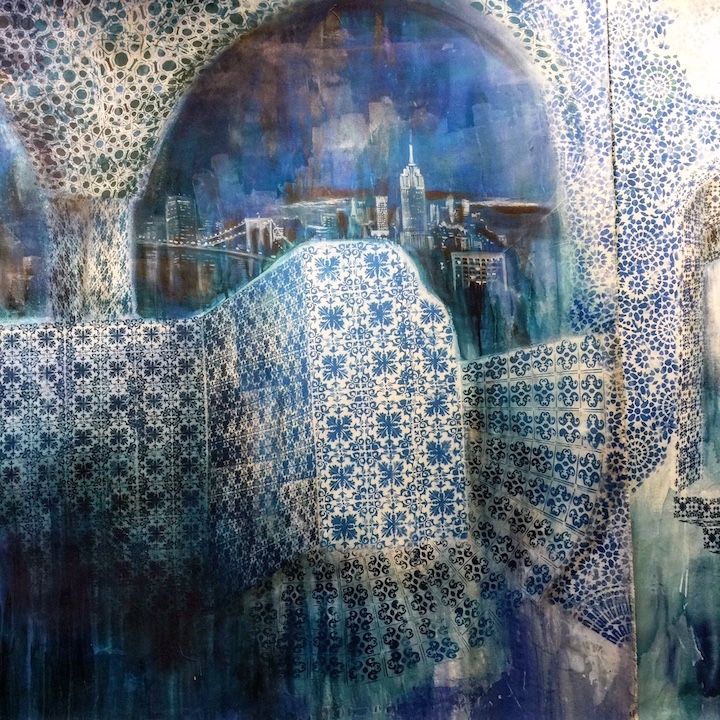
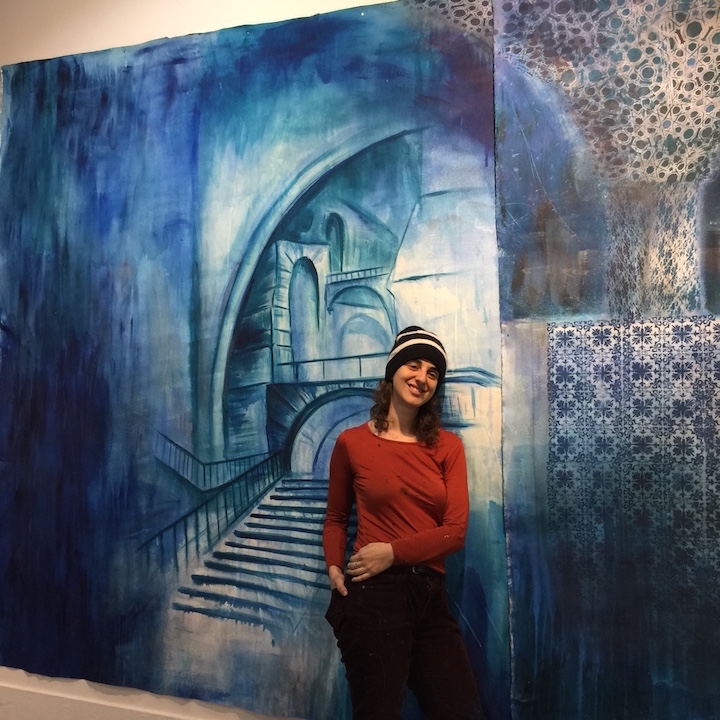
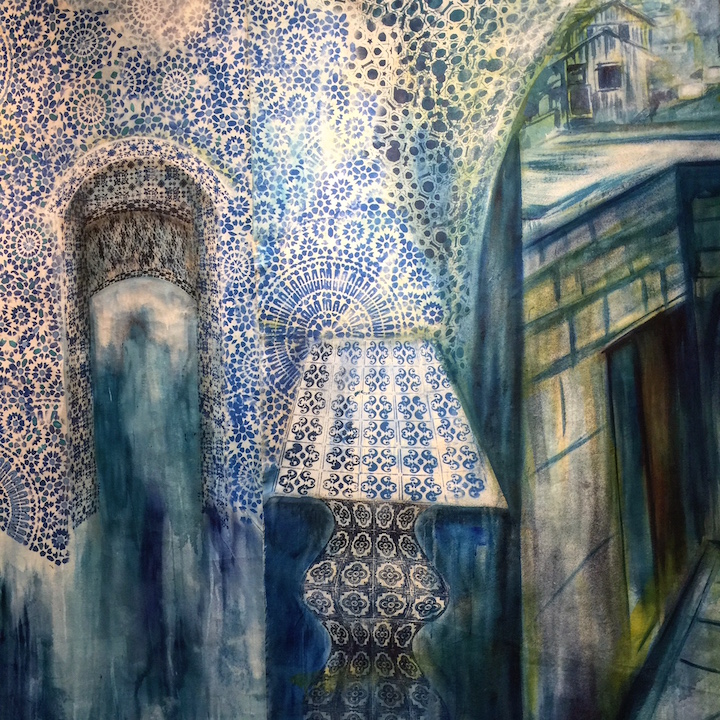
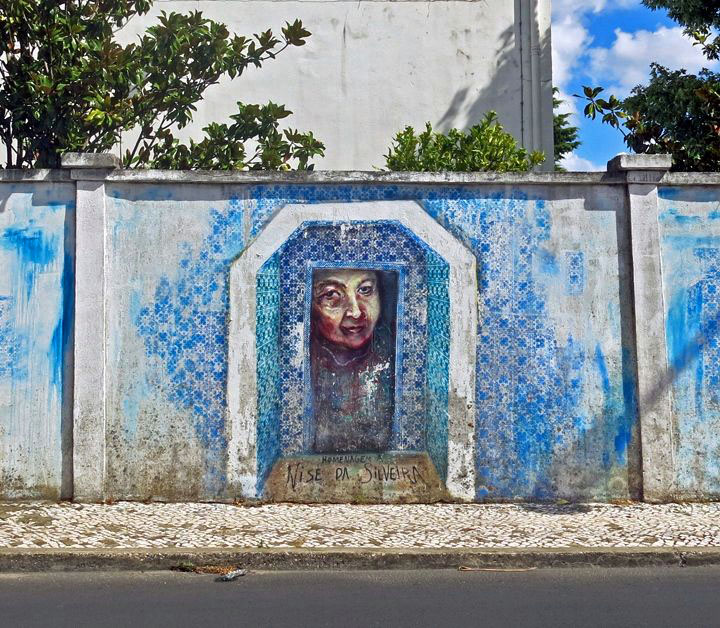
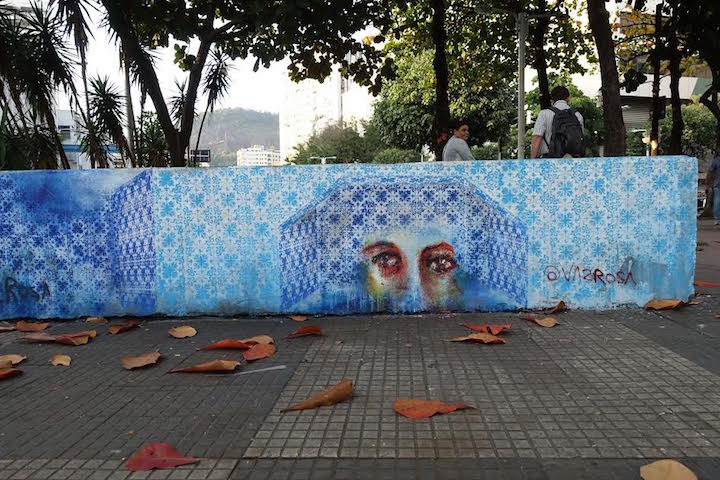

{ 0 comments… add one now }